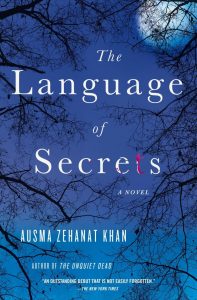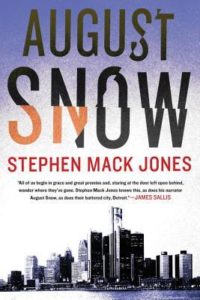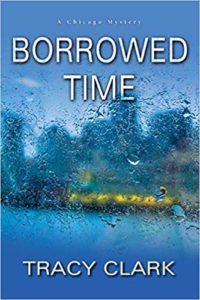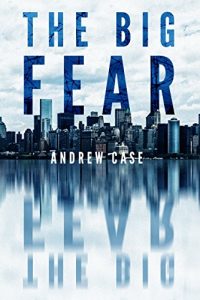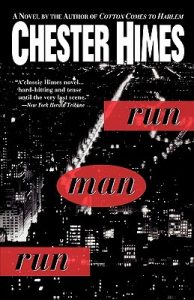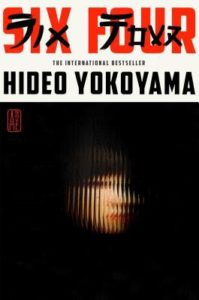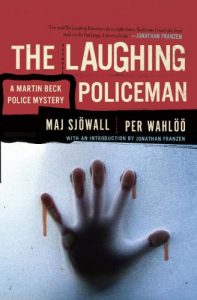The sins of crime fiction are legion. Crime authors are often as guilty as screenwriters when it comes to getting their information about so-called criminals only from law enforcement. Our beloved genre also tends to fall prey to the temptation to make their killers into efficient and highly intelligent monsters. After all, which makes the cops look better—a criminal mastermind that takes the best minds in the nation to track down, or an ordinary killer who slips away due to incompetence or indifference? Plenty of good-hearted writers shy away from the complexities of depicting driven individuals mired in the cogs of institutional iniquities. Most mysteries would rather portray a cop as a lovable buffoon than a character capable of oppression. And many a noir is guilty of being so pessimistic as to declare everyone corrupt, from the killers to the cops to the community activists.
But the best crime novels acknowledge several truths. Many police officers are burnt out or blinded by their own prejudices. No one wants to put on riot gear and work a protest. Activism and community organizing are integral forces in securing action and justice on the part of authorities. And most importantly, the intentions of individuals do not matter if the system itself is stacked against communities of color or those whose poverty or lumpenproletariat existence excludes them from the full attention of the law (unless that attention is aimed at erasure and oppression).
Here are a few crime novels that take us into the tensions between policing and communities, and between the wants of individuals and the cruel prejudice of an uncaring system. Most of the works listed are part of a series, but each can be read as a standalone.
Gary Phillips, Violent Spring (Ivan Monk Series)
Violent Spring is the first of Phillips’ critically acclaimed Ivan Monk series, set soon after the uprisings in the wake of Rodney King’s attackers’ acquittal. Phillip’s private detective protagonist begins the novel cynically watching a groundbreaking ceremony where politicians promise to rebuild the city, but make no real commitments to reforming its racist institutions. After a Korean-American shop owner is found murdered, Monk is hired to look into the case by a Korean-American business owners association, unsure of authorities’ true intentions when it comes to solving the crime. As the FBI, the LAPD, and a shady business owner’s organization representing downtown business interests keep interfering with his investigation and he begins to suspect something the murder is tied to something much bigger.
Attica Locke, Heaven My Home (Highway 59 Mystery Series)
I’m a huge fan of Attica Locke’s Highway 59 mystery series (along with the rest of the world). Darren Matthews, Locke’s complex protagonist, is torn between the duties of his job as a Texas Ranger, and his duties to his community as a Black man in American today. The two uncles who raised him represent the twin paths of addressing racism in America—his uncle in law enforcement believed in reform from inside the system, while his other uncle, a civil rights attorney, stressed bringing the fight to the public eye as the only way to win true change. In the second in the series, Darren Matthews has only weeks to wrap up an investigation into the Aryan Brotherhood before Trump takes office and reprioritizes the case; his race against time stresses the enormous pressures of working inside in a mercurial system during the few moments in which that system is actually willing to seek justice.
Ausma Zehanat Khan, The Language of Secrets (Community Policing series)
Next up, Ausma Zehanat Khan’s Community Policing series, written by an international human rights attorney. The series features two Canadian cops, poetry-loving Esa Khattak and his hockey-playing partner Rachel Getty, as they are assigned to cases that require sensitive liaising with the Canadian Muslim community. Sometimes they are able to be of genuine assistance to the communities they serve, but they are often enough used as pawns in larger games, or deployed against that very same community. Of particular note for this list is the second in the series, The Language of Secrets, in which Esa Khattak is persuaded (re: forced) to go undercover to infiltrate a mosque suspected of violent intentions, but that has (spoiler alert) only intentions for peace and community impact.
Eva Dolan, Between Two Evils (Hate Crimes Task Force series)
In a similar vein is Eva Dolan’s Hate Crimes task force series, featuring two British cops in a grimy suburb north of London, who encounter crimes in each installment that relate to social justice issues in the nation as a whole. I find this series really refreshing because the cops are always torn between what they want to do to protect communities (sometimes to protect them from the authorities) and what their jobs require them to do. Between Two Evils, the fourth in the series, came out in May, and takes the officers to an immigrant detention facility, where activists paper the small town in leaflets and turn to direct action, and a medical doctor about to expose institutional ills has been murdered. Dolan’s detectives do what they can to solve the crime, but must acknowledge within themselves that they are working for a government that incarcerates innocents in the name of xenophobia.
Stephen Mack Jones, August Snow (August Snow series)
Stephen Mack Jones’ August Snow series features an ex-cop-turned-private-detective who, after winning 12 mill from the city of Detroit and traveling the world, settles down in his community ready to transform the city for the better while fighting both gentrification and rampant institutional corruption. In the first in the series, August Snow is hired by a socialite with a secret and follows a trail of corruption and debauchery all the way up to the top; in the second, Snow gets involved in a cross-border case tied in to the nefarious activities of ICE when a young immigrant woman is found dead after crossing over from Canada to go to a party.
Tracy Clark, Borrowed Time (Cass Raines series)
Tracy Clark’s Cass Raines series is another to feature an ex-cop-turned-PI, this time one who quits the department in disgust after an incompetent colleague’s mishandling of a pursuit leads to a bullet in Cass and a dead suspect. Clark’s detective is just as community focused as Jones’, but her definition of community is wider as she ranges across the city of Chicago investigating mysteries great and small.
23 Shades of Black, Kenneth Wishnia (Filomena Buscarsela series)
Another one about a cop who quits the department after witnessing institutional injustice! Guess this is a theme within the theme here. In 23 Shades of Black, Filomena Buscarsela, a tough NYPD cop originally from a small village in Ecuador, spends her time on the job investigating whatever cases her dismissive superiors throw at her, trying to make detective. In her off-time, she fights for community justice, looking into a pollution problem with wide-ranging implications for both the city and the future of her job. By the next book, she’s out of the force and working pro-bono cases, and by the fourth book in the series, she’s got her PI license and answering to no one other than herself and her community.
Andrew Case, The Big Fear (Hollow City Series)
Andrew Case’s Hollow City series explores authoritarian abuse and police brutality more directly than most, given the author’s experience investigating police misconduct claims and bearing witness to plenty of horror stories. His protagonist has a similar profession, and in The Big Fear, he teams up with an officer previously on the wrong side of an excessive force inquiry as they uncover a vast and terrible conspiracy. Earning comparisons to Serpico, this book is about much more than a few bad apples—it’s about a system that enables corruption, brutality, and oppression.
Chester Himes, Run, Man, Run
In Himes’ out-of-print classic Run, Man, Run, undercover cop Matt Walker is bitter enough when he’s sober—but vicious when he’s drunk. After he accuses two Black automat workers of stealing his car, then brutally murders them, he sets off in pursuit of a third worker, Jimmy, who witnesses the shootings. Despite Jimmy’s insistence that he’s being followed, family, friends, and authorities all refuse to listen, even briefly incarcerating him in a mental institution for his so-called paranoia, symbolic of the system’s willingness to believe a Black man or take action to protect him from one of their own. The novel takes place in the lead-up to Christmas, and ends with an explosive confrontation. You can read more about the book in this article by Michael Gonzales.
Hideo Yokoyama, Six Four
In Six Four, a long-time policeman has just transferred to the public relations department, where he’s in charge of coaxing the father of a long-missing child to appear in a public ceremony on the tragic anniversary. Meanwhile, his own daughter is estranged, and he and his wife live in the shadows of their failed family. Confronted by the father’s extreme anger at the botched police involvement in his daughter’s kidnapping, Yokoyama’s protagonist decides to reopen the case, only to find shocking new information that his colleagues would prefer never see the light of day. Six Four is a delicate look at one man’s attempt to reconcile his job with his conscience, and to find the true meaning of service to his community.
Maj Sjöwall and Per Wahlöö, The Laughing Policeman (Martin Beck series)
There are many reasons to love this book. Martin Beck has a cold for most of the book. The police department is unreasonably excited by the appearance of an American-style serial killer. A very strange comedy record makes several appearances. But most of all, the book begins with police trying their hardest to avoid working a protest against Vietnam. They don’t approve of the war, they don’t view a heavy police presence at a protest as either necessary or advisable, and they certainly don’t want to spend their weekend cracking the heads of protestors. Who, other than a complete sadist, would?




